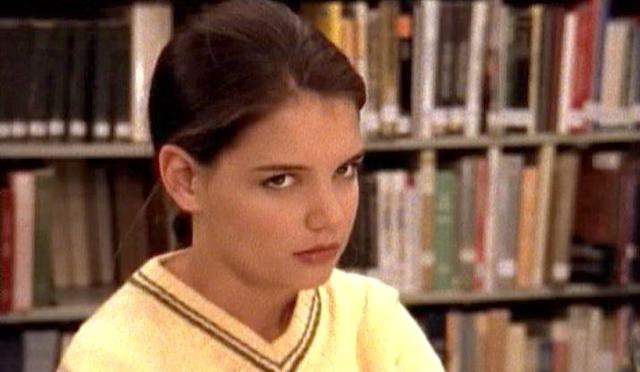We Were Poor, And College Was The Answer to All My Problems (Right?)
by Kenzie Moore

When I was growing up I never dreamed of being an astronaut or ballerina. I wanted to be a teacher, because it seemed like a steady, secure job. My family was poor. There’s not a fun, witty way to say that, so there it is. We were three kids, a single mother, and two cats, and our household income never topped $24,000. The average was $17,000.
We were poor, I knew it, and it sucked. It’s hard not to notice when your family buys food with a weird card that only works at the grocery store. Or that you frequently get letters with “FINAL NOTICE” emblazoned across the front. Or that you are never, ever supposed to answer the phone in case it is “a bad man wanting money.”
College was positioned as The Answer To All My Problems from a very young age. I think that happens with a lot of decently smart kids from poor families — college is the way up the ladder, the way out of a tiny basement apartment, the way to a six-figure income that will help not just you but also, hopefully, your family. You didn’t want to beat the kids who made fun of your Wal-Mart clothes, you wanted to join them. Upward mobility and all that.
College admissions offices were the gatekeepers to the Middle Class, my brain the key. Right.
I always knew I was going to college, and I always knew it was going to be My Thing. It would be on my back, my work that would hopefully get me a scholarship. My mom couldn’t even get approved for a Parent PLUS loan, so it was my name alone on the dotted line.
I did everything they say you should do, at least the things I had control over — gazillions of devoted extracurriculars, volunteer service, excellent grades, the hardest classes. But I went to a poor, rural school with three AP courses. My family only had enough money for me to take the ACT once, and with no fancy prep classes or training work or even books to help me practice.
After applications and offers came in, I had a couple of 50% cost-of-attendance scholarships. But once you factored in the cost of a private vs. public school, they were just as much or more than a public education would be without a scholarship. My name, my back, my thing. I decided to go to a community college for a year — it was cheap, I lived at home, my mom fed me — and then I transferred to the cheapest public university in my midwestern state.
I completed my degree in the standard four years. I worked 15 hours a week and still maxed out all of my federal aid, including loans. At graduation, I had $38,000 in student loans before interest.
I am working, thankfully. Right after graduation, I had four part-time jobs that added up to about 42 hours a week but only $1,000 a month. Then, six months later, I managed to secure The Perfect Gig. Perfect in its stability: full-time with benefits and a pay grade that lets me pay my bills). I make $28,000. I still can’t believe how fortunate I am.
I feel rich now, flush with money. My salary is more money than my single mother ever made when I was growing up. But it’s is also just a few thousand more than the in-state cost of attendance for one year at my public university. I’ve opted into an income-based repayment plan, and my student loan payment started at $0 a month. Which means: After getting my degree — the answer to every poor smart kid’s problems — I’m still really, really broke, deemed broke enough to not be able to pay back my loans yet. At this rate, I’ll be paying them still when I’m paying for my own kids, if I have my own kids, to go to school. If I weren’t on this program, my monthly loan payment would be more than my rent.
Which doesn’t make college really seem like much of a solution. I look at my student loan statements each month and feel angry and jaded toward a culture that tells poor kids that the only way to make anything of themselves is to take out a ton of loans to MAYBE have a tiny chance at competing for a job that dozens or hundreds of other people are also competing for.
I feel like someone tricked me along the way by telling me college was the answer, and I feel stupid for not having questioned that. I did enjoy college. I don’t regret my degree. I DO have a job now. But I don’t think that means the system worked for me. I think that means I’m lucky.
Kenzie Moore was almost a teacher. Now she writes and works at an arts center. Fewer kids, better wall art.
Support The Billfold
The Billfold continues to exist thanks to support from our readers. Help us continue to do our work by making a monthly pledge on Patreon or a one-time-only contribution through PayPal.
Comments